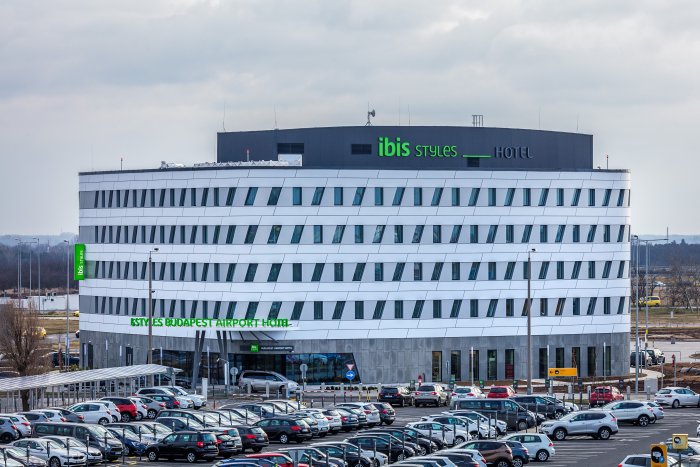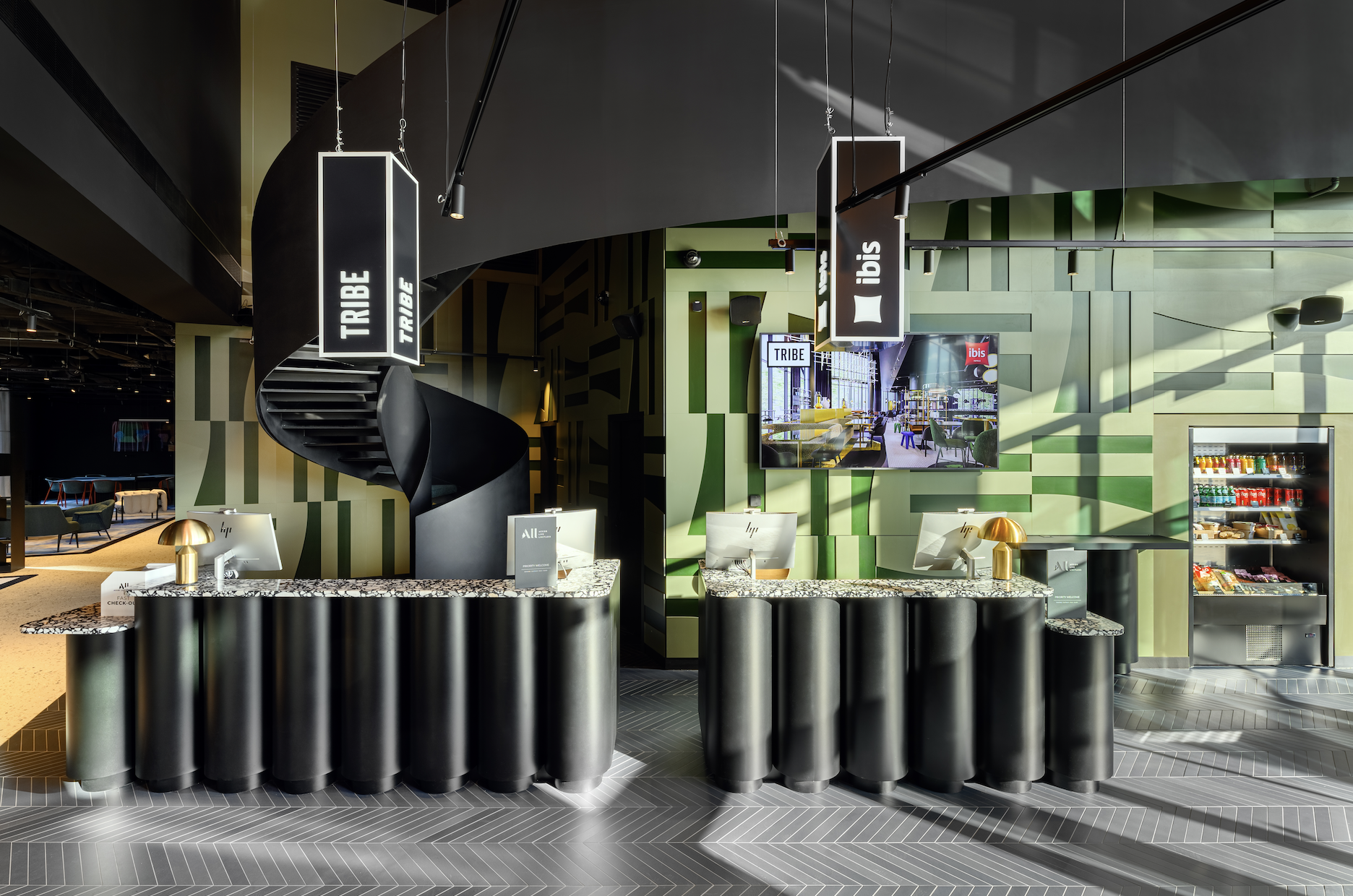Hotel Development Badly hit by Ongoing Crisis

The hotel and hospitality sector is seen as one of the most severely hit by the coronavirus with the negative impact of the crisis and subsequent lockdown and government restrictions on international travel.
Ibis Styles Budapest Airport Hotel
That said, a large number of hotel development projects in Budapest and the wider Hungary are ongoing and the sector has attracted developers and investors from the more traditional commercial property sectors seeking long-term partnerships with hotel operators for the day-to-day operation.
Although hotel delivery time pipelines can be difficult to access, a situation made more difficult by the coronavirus, CBRE has revised pipeline figures in the wake of the pandemic. The consultancy expects a maximum of 1,800 rooms to be delivered in 2020 with delivery dates slipping and other projects put on hold with no new delivery dates.
Until recently, hotels had been one of the development sectors of choice: there are now 1,700 projects across Europe representing 300,000 new rooms, according to Top Hotel Projects, with Central Europe one of the core destinations.
“Prior to March 2020 we were in the Golden age of the modern history of the Hungarian tourism industry,” says Attila Radvánszki, director of Horwath HTL Hungary.
Hungary had been hoping to exceed the 16 million airport passengers who visited the county in 2019 before the borders were closed for the first time. The overall hotel occupancy rate for Budapest fell to 30% in the first half year from an overall rate of around 85% for the second half of 2019 in Budapest.
Worst on Record
“It is worth mentioning that the available stock has also tightened, due to closings caused by the stay-at-home order and in general by the pandemic, but Budapest hotels heavily relying on foreign travelers, suffered the worst six month period on record,” comments CBRE.
When, exactly, the sector will recover from a development and investment perspective remains to be seen, although, the importance of the industry to national income cannot be underestimated. According to Horwath HTL and the Hungarian Hotel and Restaurant Association, a return to last year’s level of hotel business activity and gross operating profits (GOP) is not expected until 2023-2024 in Budapest and 2021-2022 outside the capital, based on a survey of hoteliers.
In 2019, hotel and hospitality represented an estimated 13% of GDP for Hungary employing 400,000 people with guest nights at more than 23 million. For January and February in the pre-pandemic period, gust nights were around 20% up on the previous year.
CBRE monitored a pipeline of 3,750 hotel rooms across 32 schemes in Hungary, 85% of which are in Budapest, before the onset of the international coronavirus emergency. Hotels that rely on international air travel have to look to a longer-term recovery in tourism. Other major issues facing the industry will be health measures that will have to be introduced before businesses can return to some semblance of normality.
“Hotel has a heavy pipeline and a number of projects at different stages of development are now on-hold in the development process. It makes sense to suspend projects as there is no reason to hurry the fit-out,” comments Gábor Borbély, business development and research director at CBRE Hungary.
The biggest pipeline project is the five-star, 250-room Marriott Autograph Collection in Budapest. The largest project outside the capital is the 123-room, HUF 4 billion Hunguest Hotel Sóstó in Nyíregyháza (230 km northeast of Budapest) by the Hungarian hotel chain, Hunguest.
Regional First
In the mid-range segment of the hotel market, the German Deutsche Hospitality, in conjunction with the B&L Group, is developing the 300-room and six conference room, three-star InterCity Hotel Budapest, its first in the region, at the Keleti Railway Station.
The Hungarian developer Redwood Real Estate Holding has agreed a management contract with Hard Rock International for the operation of the 140-key Hard Rock Hotel Budapest in Nagymező utca in District VI. The four-to-five star “life-style” hotel, designed by the Hungarian Studio 100, will include a Hard Rock Café restaurant with up to 120-seating capacity.
In addition to contributing to GDP, hotel development has acted as a vehicle for redevelopment and preservation of the historic center of Budapest. In a recent major renovation/regeneration project the Hungary-based, Jordanian-owned hospitality developer Mellow Mood has opened the long-awaited, 110-guest room and 18 suite Párisi Udvar Hotel in central District V. A franchise agreement has been concluded with Hyatt Unbound Collection.
The hotel market is attracting investors who were traditionally not concluding hotel acquisitions. One such example is the Hungarian-American owned investment manager Indotek, which has purchased the Art Nouveau, 230-room Gellért Hotel overlooking the Danube. The fund plans to refurbish the landmark building and upgrade the hotel to five-star status.
The hotel sector has seen a sharp decline in investment activity across Europe with uncertainty for the short-term according to Cushman & Wakefield. However investors in general show a more positive sentiment towards the sector in the long-term.
“As Hungary performed exceptionally well in 2019, Budapest is ranked high among international travel destinations, so the recovery will be even faster than in other Central European capitals,” concludes Laurent Lassier, head of hotel at CBRE Hungary.
SUPPORT THE BUDAPEST BUSINESS JOURNAL
Producing journalism that is worthy of the name is a costly business. For 27 years, the publishers, editors and reporters of the Budapest Business Journal have striven to bring you business news that works, information that you can trust, that is factual, accurate and presented without fear or favor.
Newspaper organizations across the globe have struggled to find a business model that allows them to continue to excel, without compromising their ability to perform. Most recently, some have experimented with the idea of involving their most important stakeholders, their readers.
We would like to offer that same opportunity to our readers. We would like to invite you to help us deliver the quality business journalism you require. Hit our Support the BBJ button and you can choose the how much and how often you send us your contributions.








